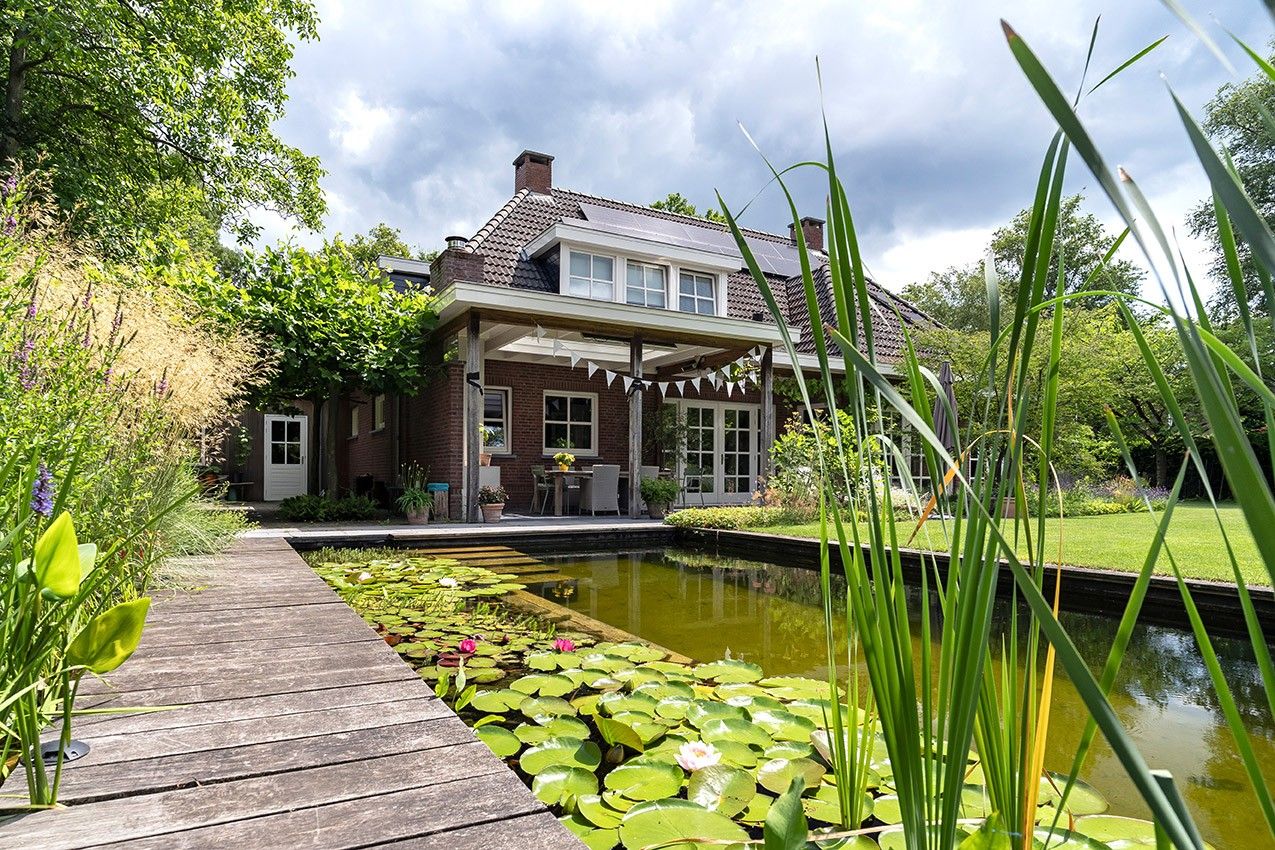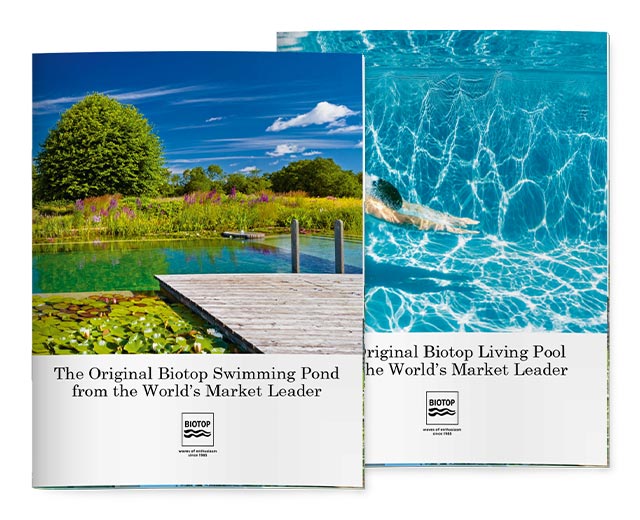News
Saving water and resources

Environmental awareness and the economical use of resources increasingly determine our everyday lives. Sustainability and environmental friendliness are also playing an increasingly important role in the purchase of a pool. While conventional systems rely on disinfection by chlorine, which kills all life in the water, natural pools hardly differ from natural bodies of water. They use nature's self-cleaning effect: instead of toxic chemicals, bacteria and microbes take care of water purification and ensure near-natural bathing pleasure. Chemical-free water is not only kind to the skin and eyes, but also protects the pool equipment and liner.
Reduced energy & water consumption
Once filled, the water of a natural pool can remain in the pool for years and it does not need to be emptied before winter. It only needs to be refilled when it evaporates and after a major service, which only becomes necessary after several years. And the "waste water" produced can then be reused in the garden or allowed to seep away locally, because it is chemical-free. Thus it benefits the natural cycle. There is also no expiry date for the natural pool water, as it regenerates itself automatically, just like in a natural body of water. Biopools also save expensive resources such as chemicals and electricity. Energy efficiency is almost always better than with conventional systems because the pool water needs to be mixed less. Smaller, more economical pumps can be used because less pressure is needed than, for example, when sand filters are used. In addition, expensive chemicals are saved, because natural pools do not use chlorine, salt for electrolysis, biocides or algaecides.
Biotop for plants and fauna
Swimming ponds offer a new habitat for flora and fauna, something that is becoming increasingly scarce, especially in densely populated areas. A swimming pond in our own garden therefore not only has a relaxing and beneficial effect on ourselves, but also provides an oasis for plants and animals. This is especially important during increasingly hot summers. In contrast to natural bodies of water, a swimming pond loses hardly any water due to its liner sealing and thus offers a valuable space for people, animals and plants. In addition, a pond is also much nicer in winter than a conventional pool. A recent study from Switzerland shows how small ponds can save our amphibians even during future droughts. It was published in the renowned journal PNAS of the American Academy of Sciences.
Conserving water and resources
Biopools not only save water, but also expensive resources such as chemicals and electricity. Natural pools do not use chlorine, salt for electrolysis, biocides or algicides. Energy efficiency is almost always better than with conventional systems, as the pool water needs to be mixed less. Smaller, more economical pumps can be used as less pressure is required than when using sand filters, for example. The energy requirement of a natural pool is therefore lower than the consumption of conventional systems. Conventional pools, on the other hand, require chemicals to be pumped into every corner of the pool to keep the water clean. This results in higher costs for electricity and costly chemicals.
Lower costs in the long run
Looking at the average life cycle of a pool, natural pools offer several cost benefits: Firstly, the water does not have to be drained annually - unlike conventional, chemically sanitised pools, which usually have to be refilled at the start of the season. On average, biopools require between 45-70% less water than conventional chlorine or salt pools. With particularly energy-efficient submersible pumps such as those we use, around 40% of electricity can be saved. If you compare the operating materials, natural pools require only minor adjustments to the water quality. In a well-balanced natural pool, the self-cleaning effect keeps the water in balance and therefore crystal clear. A little fertiliser for aquatic plants, agents to reduce water hardness or algae control are only required if necessary. The Biotop Carbonator system, which adds CO2 from the soil air in the garden to the pool and thus lowers the pH value of the water, has proven to be ideal for achieving a natural balance. Chlorine pools, on the other hand, require regular additions of chlorine, pH regulators and algicides or biocides to keep the water clean. Chlorine is a hostile element, which is why it is used for disinfection. Incidentally, salt pool systems also rely on reactive chlorine, which they generate by electrolysis. Biotop, on the other hand, stands for living water and efficient filter technology that removes most pathogens and thus ensures high water quality.

Dr Jakob Schelker heads the Technology, Research & Development departments at Biotop P&P International GmbH. He has years of expertise in researching the self-purifying power of streams, rivers and lakes. His doctoral thesis dealt with the influence of intensive forestry on the water quality of streams. Before joining Biotop, he was head of a research group at the University of Vienna.

